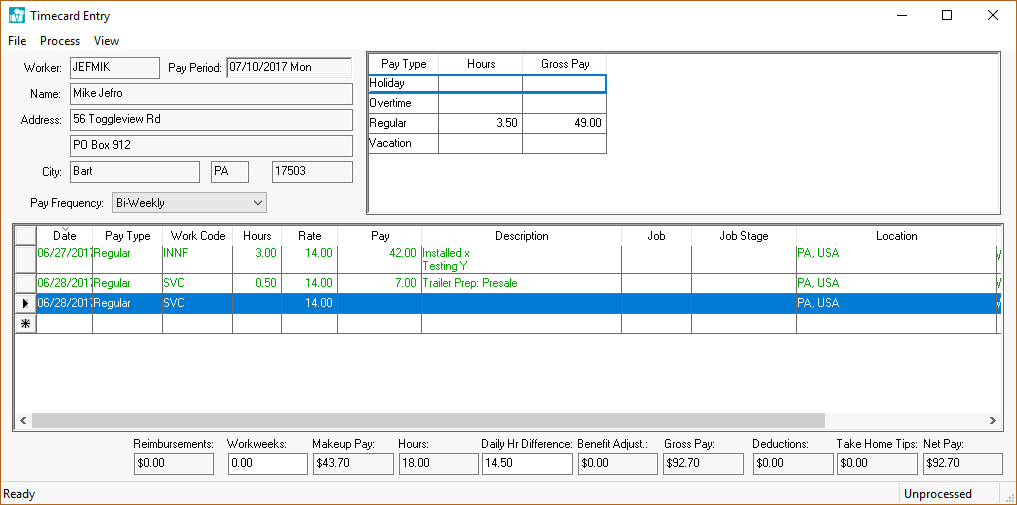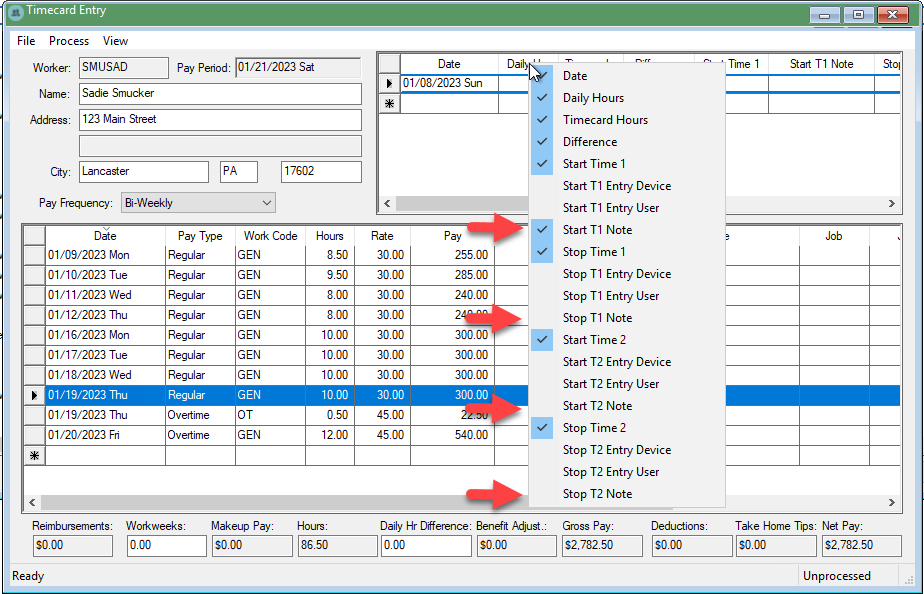Go to Labor > Timecard Entry and create a timecard entry. Review the Processing Payroll > Entering Timecards section for more details regarding timecard entry.

View > Daily Hours from the timecard menu to turn Daily Hours ON (Daily Hours checked on View menu) and to show the daily
hour’s entry table.

Daily hours can be recorded either manually or using Koble Systems’ electronic time clocks. The timecard screen may need to be resized in order to view the entire
daily hours table. Complete the following steps to enter daily hours manually:
-
Enter the of the first day worked. Some date entry shortcuts are to enter "Monday" to enter Monday’s date or "Last Monday" to enter the date for last Monday. "509" would be a numeric syntax to enter the month (5 – May), day (09, and the current year.
-
The Daily Hours, Timecard Hours, and Difference are all calculated columns.
-
The Daily Hours value reflects the total time for the individual start and stop times.
-
The Timecard Hours are derived from the detail lines of the timecard.
-
The Difference = Daily Hours – Timecard Hours
-
-
The time entry columns consist of a pair of Start Time and Stop Time that is used to enter an employee’s clock-in and clock-out times. Time entry can be expedited by ignoring the colon within time entry such as "1130" instead of 11:30. Other shortcuts include:
-
5:00 PM can be entered by typing "5p".
-
8:00 AM can be entered by typing "8".
-
3:30 PM can be entered by type "1530" using the 24 hour clock.
-
Repeat steps A-C for each workday. Use multiple lines within the daily hours table if more than two Start Times and Stop Times are needed for a single day. Set the Date of the second line to the same date as the previous line.


